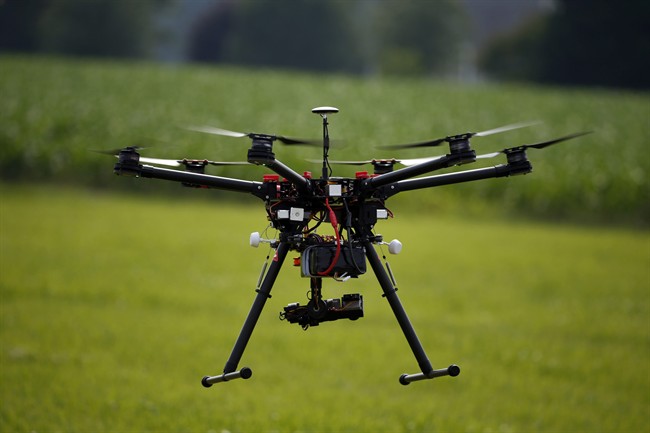Moved by a tragedy that claimed six lives, three researchers are developing a drone at the University of New Brunswick that could one day help prevent drownings off beaches around the world.

The trio, from Iran, say they were inspired to build the “Breeze Bird” after hearing about a drowning incident that killed six children in their home country.
“That was very affecting on us,” said co-developer Sadegh Tabei. “Each of us has complementary knowledge so we decided to put it together to create something that could help people.”
Tabei, who works on the drone’s robotics and electronics systems, said it’s an easy to use device that can get safety equipment like a flotation ring to someone in distress faster than a lifeguard can by swimming.
The drone can drop the ring with the push of a button.
Tabei said in initial tests over distances of 75 metres, the drone is up to 80 per cent faster than a lifeguard. It’s 95 per cent faster at greater distances of up to two kilometres.
Pooya Naderi, who works on the drone’s aerodynamics, said the device is big enough to carry heavier loads faster than most commercial drones.
“No commercial drone can carry stuff like the life tube we have for the use of lifeguards,” said Naderi.
He said the drone has accomplished in testing about 70 per cent of what the team wants it to do.
“We are still working on it but it does the main goal which is speed and reaching the victim,” Naderi said. “The final product will be more effective than this prototype, for sure.”
The third member of the team, Amir Teheri, stresses the idea of using a drone is to provide lifeguards with another tool and not to replace them.
“It saves time until the lifeguard arrives,” said Teheri.
The team members, who study in France, are in Fredericton as part of UNBs summer institute program.
The three-month program attracts international students in order to develop ideas to help create viable businesses.
- Singh mulls TikTok return as U.S. nears potential ban over security fears
- More financial institutes are offering crypto-services, survey shows
- ‘Sciatica was gone’: hospital performs robot-assisted spinal surgery in Canadian first
- EV sales in Canada rose in recent years despite higher interest rates. Why?



Comments